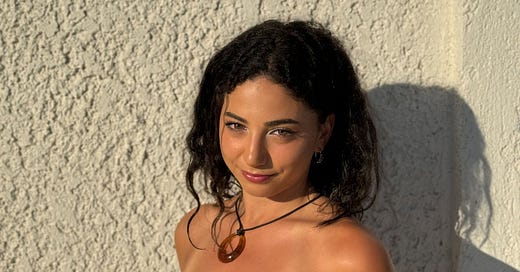When I received a Media Diversity Australia scholarship at 21 and entered a newsroom as a first-generation Lebanese-Australian, I felt guilty, like I’d been given an “easy” way in. But I quickly realised how necessary those opportunities are. I was the only one who looked like me in the room, and often, the only one considering how my community was portrayed.
I took this responsibility of representation very seriously. The scholarship changed my life. But diversity efforts often focus on getting marginalised people into an industry, not on what happens once they’re there.
I spent many mornings interviewing crime victims, watching violent footage, and reading hate speech online. I was exposed to racist slurs, harassment, and heard baseless assumptions that criminal suspects “must be African”. I took pride in reporting with detached stoicism, but felt isolated. When I spoke up, it seemed no one listened.
And I’m not alone. This year, career dissatisfaction among women in media reached a four-year high, at 59 per cent, according to the 2025 Women in Media Industry Insight Report.
As Israel’s genocide against Palestinians escalated, I couldn’t stay detached. I had family in Lebanon. I was watching horrific images while being told to stay silent. I signed an open letter calling for improved coverage from Australian media outlets. After that, I was banned from reporting on the conflict.
What struck me was the hypocrisy. I was asked to translate Arabic and commissioned to write personal essays about my ethnicity. But suddenly, I was “too biased” to do my job. I’d reported on the Middle East before, in fact, I had more insight and contacts than most.
I realised my presence served a cosmetic purpose, leading to awkward moments where leaders apologised for being white or claimed they couldn’t find diverse hires. I was tired of being the target of harassment and the one responsible for soothing the guilt of those above me.
Objectivity seemed to apply only when your identity aligned with the status quo.
When Antoinette Lattouf was pulled off-air three days into a casual fill-in role with ABC Sydney Mornings radio, this became more clear to me. Her five day contract was cut short after she shared a Human Rights Watch post reporting that Israel was using starvation as a weapon of war in Gaza.
This week, she won her unlawful termination case against the ABC.
Antoinette Lattouf interviewed me for the scholarship. She struck me as the kind of woman nobody messed with. So when she became a target, it felt like a warning. If someone like her could be punished for sharing facts, or ‘opinions’, what protection did the rest of us have?
If newsrooms want genuine diversity, there needs to be a redistribution of power, not just optics. They need to not bow down to lobbyist pressure, or punish women like Antoinette who are simply sharing facts.
In my view, women, especially those of colour, are edged out of senior newsroom roles once their “civility” no longer fits the culture. In other words: fit in, or get out.
I pivoted into lighter content to give myself room to breathe. I wrote advice columns, lifestyle pieces, and made pop culture videos about Charli xcx and JoJo Siwa. But even that drew criticism.
People commented telling me to “report the real news.” One demanded I cover sexual violence. Another, the Middle East. I’ve written about both, often drawing on painful personal experience.
Why do we expect women, especially those of colour, to carry the weight of every gap in news coverage? Especially when we’re targeted for doing so? We’re punished either way, for reporting on issues that affect our communities, or for creating content that brings us joy.
I’m returning to the news. I know I’m capable. I know I have insight to offer. But I feel a crushing sense of guilt for taking time away while people, overwhelmingly Palestinian, those who look like me, are suffering, dying, and enduring generational trauma. Because while the expectation on women of colour to be mascots of suffering is reductive, what would happen if we stopped speaking out?
About the author:
Abbir Dib is a Melbourne-based journalist and writer with bylines in ABC, SBS, and The Age/Sydney Morning Herald, covering everything from breaking news to pop culture.
To find more of Abbir’s work, head to her website: abbirdib.com or follow her on Instagram (ab.dib)





Any reasonable person is horrified by the fate of Palestinians. Sadly missing is the least whisper about the culpability of HAMAS or their Iranian puppet masters.